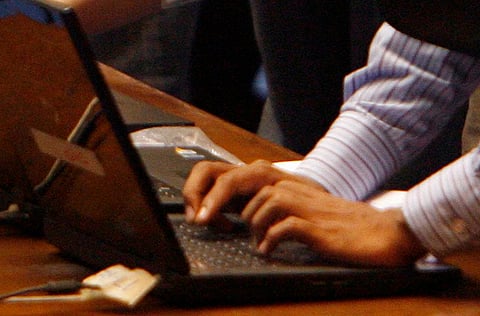Suresh Menon: Not hacked off with hackers
Suresh Menon is a writer based in India. In his youth he set out to change the world

I sometimes wonder what my friends would make of it if I were to actually lose my papers in Milan or Istanbul and send out a message asking for money. Some of them have had the experience - not of being stuck abroad without money or credit cards, but of having messages sent in their names by someone who has hacked into their accounts.
I am told it is part of a Nigerian scam (‘you have won 12 million dollars in a raffle, please send your bank details and a thousand dollars....'), I am sure Swedes, Indians and lots of others are doing it independently.
I had a message from a novelist friend of mine last week saying she was stranded in an Italian city and would I please etc. I knew she was travelling in Italy at the time - so our hacker was not only techno-savvy, he ( or she, let us not discriminate here) was also geography-savvy.
The plea was most heart-rending, appealing to our long friendship, my better self, and the time my friend helped me get a ticket for a concert which had been sold out. Imagine a stranger going through your mail to put together so much casual information that the letter seems genuine. It is the casual, the almost forgotten detail that lends verisimilitude to a scene (as novelists will tell you) or to pleas for help (as those duped in the scam will vouch).
It set me thinking. What if I really had to send out an appeal like that? Most of us can't get beyond the telegraphic - in trouble, need help, send money - that served us so well in our student days, when long explanations while writing home for money merely extended the agony.
But that is unlikely to work now thanks to hackers who write so beautifully and in such detail.
On the other hand, when you see something almost poetic from a ‘friend' who is innocent of such language, that is suspicious too.
The best part of the scam is the way in which it brings together old friends, since the hacker cannot discriminate and sends out the mail to everybody in the hackee's address book.
My novelist friend, for instance, was thrilled to reconnect with college mates who called up to double check just in case.
I think the best way to tell friends that a cry for help is authentic is by introducing a word that is easily identified by them, and only them. For example, dear reader, if you receive a message from me with the word ‘saccade' in it, then it is authentic. Lovely word that, and unlikely to be in the vocabulary of most hackers.


